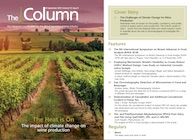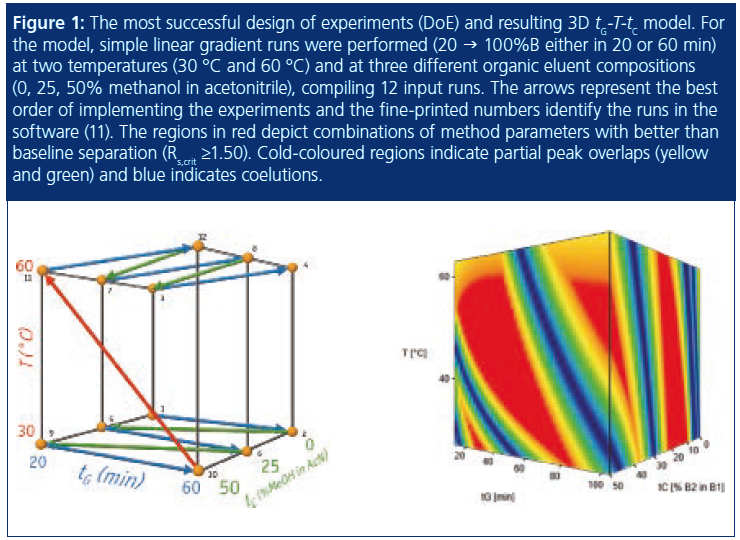ChromSoc Return to “Grass Roots” with Biopharmaceutical Event
The Chromatographic Society (ChromSoc) will be hosting the 4th “Grass Roots” educational event at the Longmynd Hotel in the beautiful market town of Church Stretton from the 4–7 October 2019.
The Chromatographic Society (ChromSoc) will be hosting the 4th “Grass Roots” educational event at the Longmynd Hotel in the beautiful market town of Church Stretton from the 4–7 October 2019. This course is another in a series of highly successful events organized by ChromSoc. The upcoming course will focus on the understanding and application of biopharmaceutical workflows, with a focus on the chromatographic workflow applied to monoclonal antibody (mAb) characterization. It will focus on all aspects of the workflow including:
- Charge variant analysis by ion-exchange chromatography (IEC)
- Preparation and analysis of glycans using hydrophilic interaction liquid chromatography (HILIC)
- Analysis of aggregates and protein fragments by size-exclusion chromatography (SEC)
- Analysis of intact proteins using reversedâphase liquid chromatography (LC)
- Protein digestion and peptide separation
Sessions will also be dedicated to electrophoretic separations applied to protein analysis and the use of mass spectrometry (MS) in the field of protein analysis
Training will be led by practising separation scientists who are also long-standing leaders in their respective fields: Paul Ferguson (AstraZeneca), Tony Taylor (Crawford Scientific), Tony Edge (Agilent), and Ken Cook (Thermo Scientific). While the meeting will be primarily educational, there will also be extensive opportunities for networking, and a social programme that includes walks in the picturesque Shropshire countryside.
Given the educational nature of the event, and to increase its accessibility, ChromSoc will provide a limited number of bursaries to cover the cost of accommodation, meals, registration, and a limited travel allowance for the three-day event. These include bursaries for post-graduate students, academic researchers, and Ted Adlard bursaries for industrial scientists from SMEs. The bursaries will allow all researchers, regardless of their financial ability, to access what we (and previous attendees) believe will be an exceptional learning experience.
If you are analyzing mAbs and want a better understanding of the full workflow and how to improve individual assay performance from UK leading separation scientists, then this event is essential.
The following are testimonials from previous courses: “I honestly had the most amazing time and have been completely overwhelmed by the information thrown at me whilst being in a place that was truly magical…There’s nothing better than listening to people who truly know and LOVE their subject!…You can imagine coming into work today has been a struggle and explaining to my bosses you can also imagine how jealous they feel! They love my own enthusiasm so are happy that I came away with so much from the course-the course folder is something they are very happy in seeing and it would seem I’ve certainly lost it for a while as they realize the information they could have gained for themselves. It will most certainly be of much interest…Words are definitely not enough in my gratitude towards yourself and the others on the teaching team.”
“I would highly recommend future ChromSoc ‘grass roots’ educational events to all with an interest in chromatography, whether they work in academia or in industry. The revision of fundamental chromatography, extensive method development, and the excellent advice on interviews and applications are extremely applicable to the assessment centres and interviews provided by large pharmaceutical companies and instrument vendors. The event finds a great balance between an intensive lecture course and a professional networking experience set within the relaxed environment of a remote country house.”
To register, click here: http://bit.ly/2L1Jsqa

Characterizing Polyamides Using Reversed-Phase Liquid Chromatography
May 5th 2025Polyamides can be difficult to characterize, despite their use in various aspects of everyday life. Vrije Universiteit Amsterdam researchers hoped to address this using a reversed-phase liquid chromatography (RPLC)-based approach.
Navigating The Path To Modern Slalom Chromatography: An Interview with Fabrice Gritti
May 1st 2025Fabrice Gritti, consultant scientist at Waters Corporation, spoke to LCGC International about the history of slalom chromatography (SC) and why he decided that the technique was worth re-investigating. The potential benefits of SC, according to Gritti, include identifying RNA impurities when manufacturing mRNA therapeutics, and assisting in the development of new gene and cell therapies, and other biopharmaceutical applications.

.png&w=3840&q=75)

.png&w=3840&q=75)



.png&w=3840&q=75)



.png&w=3840&q=75)











